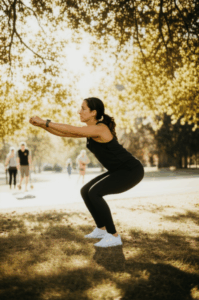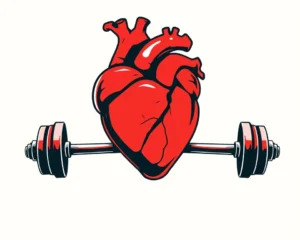Feeling sluggish, unmotivated, or just generally “blah”? It might be time for a health reset. A 28-day challenge can be a fantastic way to jumpstart a healthier lifestyle, establish new habits, and see real changes in your body and mind. This guide outlines a simple yet effective 28-day plan focusing on hydration and a core-strengthening exercise to help you feel refreshed and revitalized.
Why a 28-Day Health Reset?
A 28-day challenge is short enough to maintain commitment but long enough to start seeing tangible results and form lasting habits. Studies suggest it takes approximately 21 to 28 days to establish a new habit. A structured challenge provides a clear roadmap, making it easier to stay focused and motivated.
Benefits of a 28-Day Health Reset:
- Develop a fitness habit: Consistency is key to achieving fitness goals, and a 28-day challenge is designed around the sweet spot for habit formation.
- Increase Metabolism and Energy Levels: Regular exercise, even in small doses, can increase your resting metabolic rate and boost energy levels.
- Accelerate Weight Loss and Muscle Toning: Combining cardio and strength training aids in weight loss while preserving and building lean muscle.
- Build Mental Toughness and Discipline: Completing a 28-day plan trains your brain to push through discomfort and stay focused.
- Provide Structure: A fitness challenge provides structure to your workout schedule.
The 28-Day Health Reset Challenge: Simple Steps for a Healthier You
This challenge focuses on two core components: optimal hydration and daily core strengthening. Here’s a breakdown:
1. Hydration Hero: 2 Liters of Water Daily
The Challenge: Drink at least 2 liters (approximately 8 glasses) of water every day for 28 days.
Why Water?
- Boosts Energy Levels: Dehydration is a primary cause of fatigue. Water plays a crucial role in maintaining healthy blood circulation, ensuring oxygen and nutrients are transported effectively throughout the body, supporting energy levels.
- Promotes Healthy Skin: Increased water intake can lead to healthier, more radiant skin by balancing water and oil content, preventing excess oil buildup, and reducing clogged pores and breakouts.
- Aids Digestion: Water helps break down food more efficiently and facilitates movement through the digestive tract.
- Supports Weight Loss: Drinking water can reduce appetite and make you feel fuller, reducing the chances of overeating.
- Flushes Out Toxins: Water helps the body eliminate waste products through bowel movements, sweat, and urine, supporting kidney function.
- Prevents Dehydration: Prevents dehydration, which leads to kidney stones, urinary tract infections, and heat-related illnesses.
Tips for Staying Hydrated:
- Carry a reusable water bottle with you throughout the day.
- Set reminders on your phone to drink water at regular intervals.
- Drink a glass of water before each meal.
- Infuse your water with fruits like lemon, cucumber, or berries for added flavor.
- Track your water intake using a water tracking app or by marking measurements on your water bottle.
2. Core Crusher: 30-Second Plank Daily
The Challenge: Perform a 30-second plank every day for 28 days.
Why Planks?
- Strengthens Core Muscles: Planks engage all major core muscles, including the rectus abdominis, obliques, and transversus abdominis.
- Improves Posture: Strengthening back muscles can improve spinal curvature and reduce the chances of developing back and neck problems.
- Enhances Balance: Holding a plank helps improve balance and gain better coordination among body parts.
- Activates Full Body: Planks engage the entire body, including the back, shoulders, legs, biceps, and triceps.
- Boosts Metabolism: Planks can help alleviate common issues like gas, bloating, and acidity.
- Convenient: Planks require no equipment and can be done anywhere.
- Full-body engagement: Traditional planks hit all of your core muscles, but it also engages your shoulders, back, glutes, and quads.
How to Perform a Plank Correctly:
- Start in a push-up position.
- Lower down onto your forearms, keeping your elbows directly beneath your shoulders.
- Engage your core, keeping your body in a straight line from head to heels.
- Avoid letting your hips sag or your back arch.
- Hold the position for 30 seconds.
- Rest for 30 seconds and repeat 2-3 times.
Modifications:
- Beginner: If you cannot hold a plank for 30 seconds, start with 15-20 seconds and gradually increase the duration as you get stronger. You can also perform the plank on your knees.
- Advanced: Increase the duration of the plank, try plank variations such as side planks, or add movement like plank jacks.
Supercharge Your Challenge: Additional Tips for Success
While the core challenge focuses on hydration and planks, incorporating these additional tips can further enhance your results:
1. Set Realistic Goals
- Set a clear and meaningful goal. Every challenge needs a specific outcome.
2. Balanced Nutrition
- Focus on Whole Foods: Prioritize fruits, vegetables, lean proteins, and whole grains.
- Limit Processed Foods: Reduce your intake of sugary drinks, processed snacks, and fast food.
- Eat Mindfully: Pay attention to your hunger and fullness cues, eating when hungry and stopping when satisfied.
- Balanced Approach: A successful challenge incorporates a balanced approach to fitness, including elements of strength training, cardiovascular exercise, flexibility, and nutrition.
3. Regular Exercise
- Incorporate Cardio: Aim for at least 30 minutes of moderate-intensity cardio most days of the week. This could include brisk walking, jogging, cycling, or swimming.
- Strength Training: Include strength training exercises 2-3 times per week to build muscle and boost metabolism.
- Vary Your Workouts: To avoid risk of injury or burn-out, try a variety of workouts. Alternate easy and hard days, change the mode of exercises and use different types of equipment if strength training (for example barbells, dumbbells, TRX, medicine balls, bodyweight, cable machines).
4. Prioritize Sleep
- Aim for 7-9 Hours: Get adequate sleep each night to support recovery and overall health.
- Establish a Routine: Create a relaxing bedtime routine to improve sleep quality.
5. Manage Stress
- Practice Relaxation Techniques: Incorporate activities like yoga, meditation, or deep breathing exercises to manage stress levels.
- Engage in Hobbies: Make time for activities you enjoy to promote relaxation and well-being.
6. Track Your Progress
- Keep a Journal: Record your daily water intake, plank times, workouts, and meals.
- Take Photos: Take before and after photos to visually track your progress.
- Celebrate Small Wins: Acknowledge and celebrate your achievements along the way to stay motivated.
7. Stay Motivated
- Find a Workout Buddy: Exercising with a friend can provide support and accountability.
- Join an Online Community: Connect with others who are participating in similar challenges for encouragement and motivation.
- Set Weekly Mini-Goals: This will help you remain accountable.
- Set Yourself a Reward: Rewarding yourself is important in order to remain motivated.
- Use Positive Self-Talk: Positive self-talk can motivate and encourage you to stay on track towards your goals.
8. Staying on Track
- Manage Your Time Well: Identify your priorities and focus on them first. Then allocate time for other activities like exercise or new habits.
- Create a Personalised Schedule: Your workout schedule should fit into your lifestyle and around your current commitments.
- Plan Challenge Check-Ins: Schedule check-ins with yourself or your accountability buddies. Evaluate how you’re feeling, what’s motivating you or what may be affecting your motivation, and make sure to write down any progress you’ve made.
9. Listen to Your Body
- Rest When Needed: Allow your body adequate rest and recovery to prevent injury.
- Stay Hydrated: Drink plenty of water to support bodily functions and prevent dehydration.
- Proper Planning: Have a plan ready so you can get the job done especially when you’re short on time.
Overcoming Challenges
It’s normal to encounter obstacles during the 28-day reset. Here’s how to handle them:
- Missed a Day? Don’t get discouraged. Just get back on track the next day.
- Feeling Unmotivated? Remind yourself of your goals and find ways to make the challenge more enjoyable.
- Time Constraints? Break up your workouts into smaller chunks or find ways to incorporate activity into your daily routine.
Is a 28-Day Challenge Right for You?
While 28-day challenges can be a great way to kickstart your health and fitness journey, it’s important to approach them with realistic expectations. Consider the following:
- Upsides: Clear structure, short-term commitment, quick results, and habit building.
- Downsides: Unrealistic expectations and unsustainable changes.
Choose challenges that prioritize sustainability, individualization, and overall well-being to maximize your chances of success and create lasting changes that extend far beyond the 28 days.
Ready to Reset?
Embark on this 28-day health reset challenge and discover the incredible benefits of prioritizing hydration and core strength. With consistency, dedication, and a positive mindset, you’ll be well on your way to a healthier, happier you!







